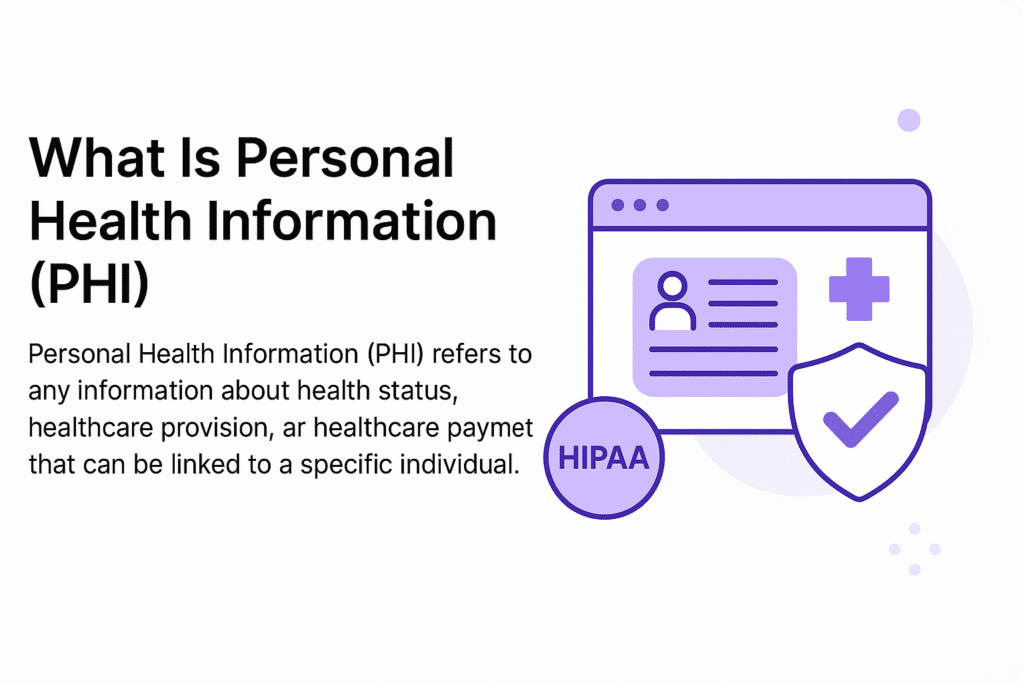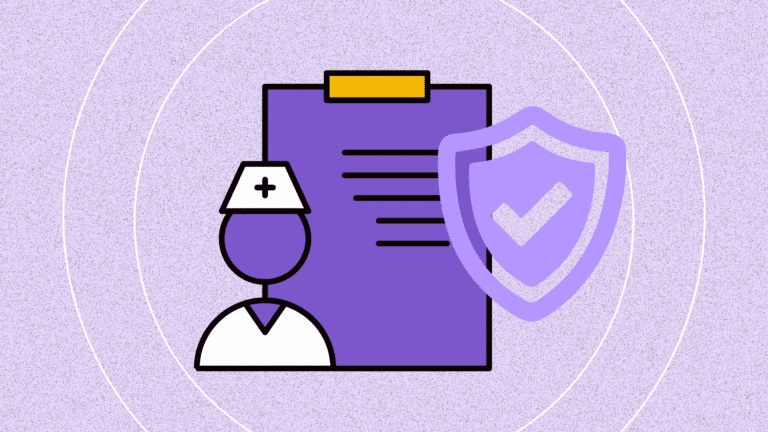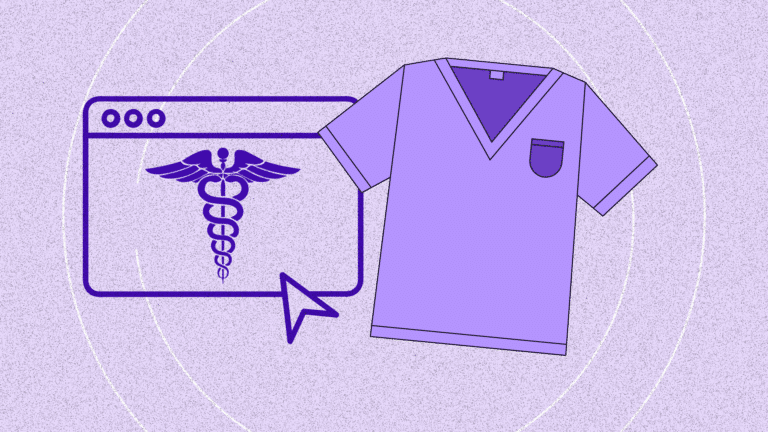Summary
Personal Health Information (PHI) includes any data related to a person’s health status, healthcare services, or payment history. For CISOs, privacy officers, and compliance leaders, protecting PHI is critical for meeting HIPAA regulations, preventing costly data breaches, and preserving patient trust.

What Is Personal Health Information (PHI)?
Personal Health Information (PHI) refers to any information about health status, healthcare provision, or healthcare payment that can be linked to a specific individual. It includes data like medical records, lab results, insurance details, and even appointment dates—essentially anything that can identify a patient in a healthcare context.
Under U.S. law, specifically the Health Insurance Portability and Accountability Act (HIPAA), Personal Health Information (PHI) is a legally protected category of sensitive information.
How It Works
Personal Health Information (PHI) can be stored, processed, and transmitted through many digital channels—including web applications, patient portals, and online forms. When users interact with these platforms, their data is often collected via client-side scripts, cookies, or third-party trackers.
HIPAA regulations require covered entities and business associates to implement administrative, technical, and physical safeguards to ensure the confidentiality, integrity, and availability of Personal Health Information (PHI). This includes securing the front end of web applications—an area often overlooked in traditional security models.
Who Does This Concern
Organizations that create, receive, store, or transmit PHI are legally required to protect it. This includes:
- Hospitals and clinics
- Health insurers
- Pharmacies
- Telehealth providers
- Third-party processors and analytics vendors
- Health-focused mobile app developers
Failure to secure PHI—especially through modern web technologies—can result in HIPAA violations, reputational damage, and multi-million dollar fines.
Real-World Examples
- Meta Pixel violations: In 2023 and 2024, multiple hospital websites were found sharing PHI with Facebook through Meta Pixel—leading to class-action lawsuits and government scrutiny.
- Tracking script exposure: A telehealth provider was fined after browser scripts exposed appointment details and prescription information to unauthorized marketing partners.
How to Protect It
To protect PHI in web environments:
- Conduct regular client-side script audits
- Block unauthorized third-party trackers
- Implement Subresource Integrity (SRI)
- Use behavior-based detection to identify malicious code injections
- Limit data collection to only what’s necessary
These techniques help prevent PHI from being leaked through JavaScript-based attacks, session replays, or cookie abuse.
How Feroot Helps
Feroot’s HealthData Shield AI platform helps healthcare organizations detect and prevent PHI exposure through unauthorized tracking technologies on websites and patient portals. By monitoring JavaScript behavior in real time, Feroot ensures compliance with HIPAA while improving data governance.
FAQ
What qualifies as PHI under HIPAA?
Any individually identifiable health information—such as names, dates, diagnoses, treatments, and billing records—is considered PHI when created or used by a covered entity.
Can PHI be exposed through web tracking tools?
Yes. Tracking pixels, analytics scripts, and cookies can unintentionally (or maliciously) collect PHI. This is a major HIPAA compliance risk.
How does Feroot detect PHI risks on my website?
Feroot continuously monitors client-side scripts, detects unauthorized trackers, and flags behaviors that could expose PHI, helping you maintain HIPAA compliance.
Is IP address considered PHI?
Yes, when linked to health information. For example, if an IP address is associated with someone filling out a medical intake form, it can be classified as PHI.


